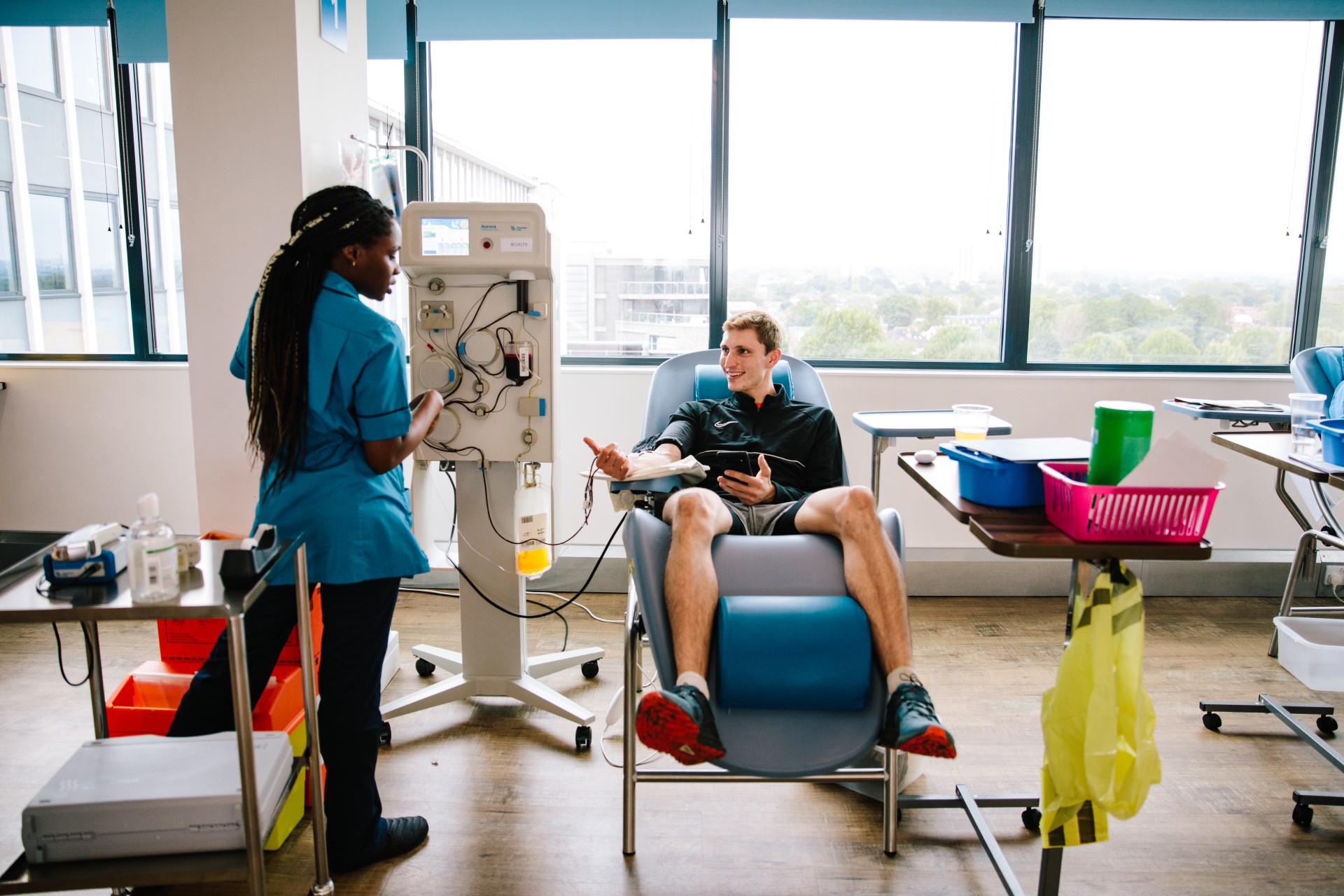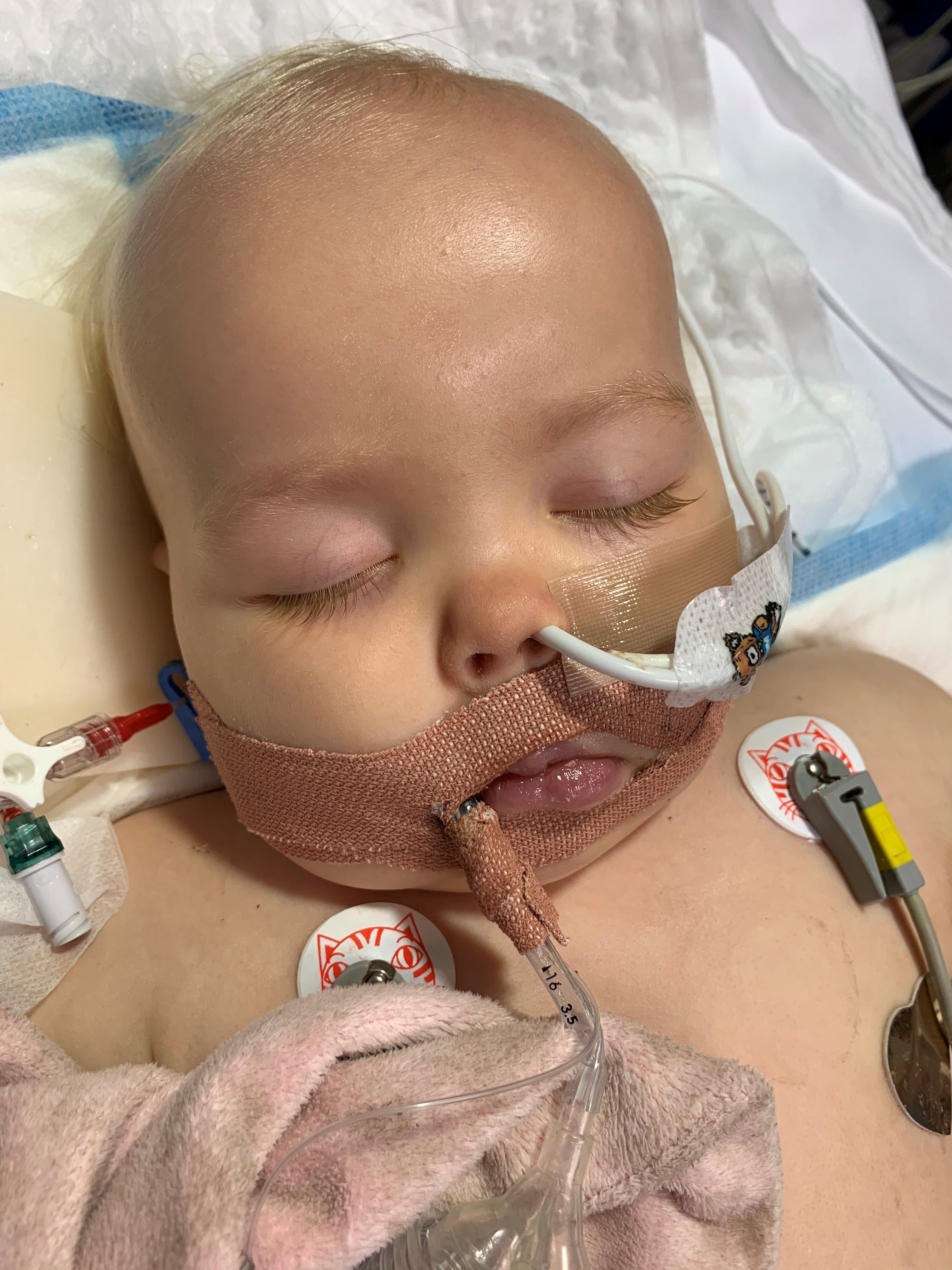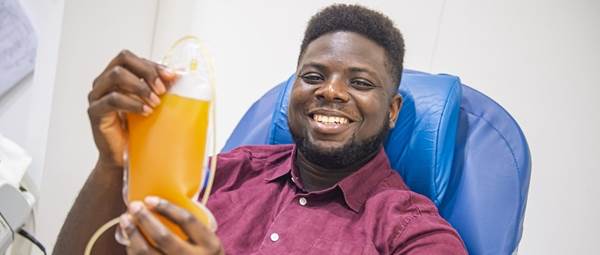Number of children treated for Kawasaki disease doubles prompting plea for plasma donors
More than twice as many children needed plasma medicine to treat a disease which can cause childhood heart failure, latest figures show.
NHS Blood and Transplant is highlighting the figure for Kawasaki disease Awareness Day [Thursday, January 26] to urge more people to donate plasma, as only half the target amount of plasma is currently being donated.
The latest annual figures show that 706 children needed immunoglobulin, the medicine made from plasma, to treat Kawasaki disease. (1)
However during the previous five years, an average of only 336 children needed immunoglobulin treatment for Kawasaki disease each year. (2)
Kawasaki disease is the leading cause of acquired heart disease in children aged under five in the UK. It can be fatal if not treated in time. (3)
The symptoms are a high temperature that lasts for five days or longer, and possibly one or more of the following symptoms:
- a rash
- swollen glands in the neck
- dry, red cracked lips
- a swollen, bumpy, red tongue
- red inside the mouth and at the back of the throat
- swollen and red hands and feet
- red eyes.
Kawasaki disease may be linked genetic factors and also how the body responds to infections. The blood vessels around the heart can become inflamed. The increase in cases over 2020/21 may have been driven by coronavirus infections.
 Plasma is the liquid part of blood. It is rich in antibodies, which fight infections. The antibodies are concentrated into immunoglobulin medicine, which stabilises the immune response and reduces inflammation.
Plasma is the liquid part of blood. It is rich in antibodies, which fight infections. The antibodies are concentrated into immunoglobulin medicine, which stabilises the immune response and reduces inflammation.
Currently, NHSBT has 5,850 plasma donors, but this is only just over half of how many donors are needed (around 10,200).
Between 1998 and 2021, plasma from UK donors could not be used for immunoglobulin as a vCJD precautionary measure, which meant the UK relied on imported immunoglobulin. However there are international supply pressures and international shortages.
The Government decided plasma collection for immunoglobulin should restart in England in 2021, after it accepted updated safety advice from the (Medicines and Healthcare products Regulatory Agency) MHRA.
NHS Blood and Transplant is now taking dedicated plasma donations in Twickenham, Reading, and Birmingham. NHSBT is also now recovering plasma from normal blood donations so that it can be used for immunoglobulin.
The plasma being collected by NHSBT is being stored, ready to be made into immunoglobulin when a new domestic manufacturing and supply chain is in place, to bolster NHS supplies.
You can donate plasma in Birmingham, Reading, or Twickenham. Plasma is also recovered from normal blood donations. Find out more about plasma donation here.
More plasma donors are needed to treat Kawasaki disease

Bella Hessey, 3, from Bicester, needed lifesaving treatment with immunoglobulin after developing Kawasaki disease as a baby.
Bella developed symptoms such as a whole body rash, red eyes, high temperature, but she was initially misdiagnosed as having an ear and throat infection.
She suffered some bulges in the blood vessels around her heart. Where one artery should have been 1 to 2mm wide, it was 12mm wide
Mum Abigail Baker, 26, a recruitment consultant, said: “The immunoglobulin's effect was instant. Straight away, her colour came back to normal. By the next morning she was eating again and her fever had completely gone. It saved her life.”
She added: “You see comments online from people all over the world trying to get hold of immunoglobulin because it's expensive. It's very important that people can donate again in England so we can have a more secure supply here, especially because treatment for Kawasaki disease is time restricted.”
Statements
Press release notes
- Additionally, during 2020/21, another 135 children were treated with immunoglobulin for Paediatric inflammatory multisystem syndrome associated to COVID-19, a new disorder which has similar symptoms to Kawasaki disease.
- Immunoglobulin Database Data Update for 2020/21 (PDF 1.12MB), published September 2022, compared to the figures for the previous five years
- 19% of all children affected by Kawasaki disease in the UK go on to have serious, lifelong heart damage – which is why it’s the number 1 cause of acquired heart disease in children. Delayed immunoglobulin treatment is associated with coronary artery aneurysm development. Kawasaki disease: a prospective population survey in the UK and Ireland from 2013 to 2015

